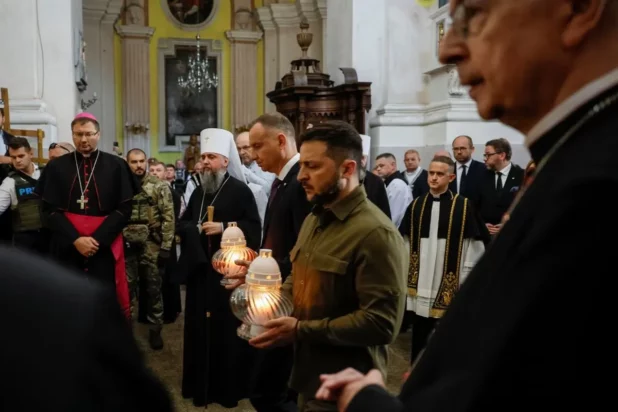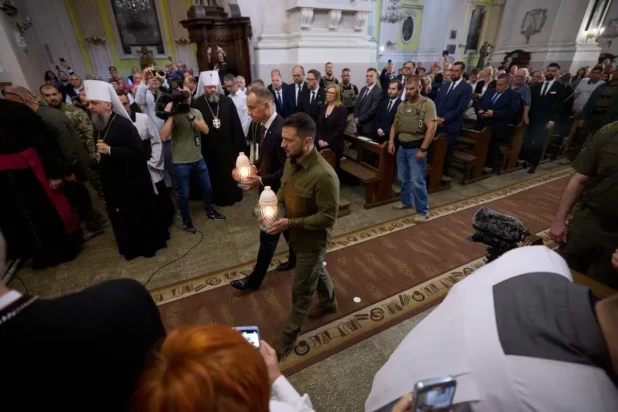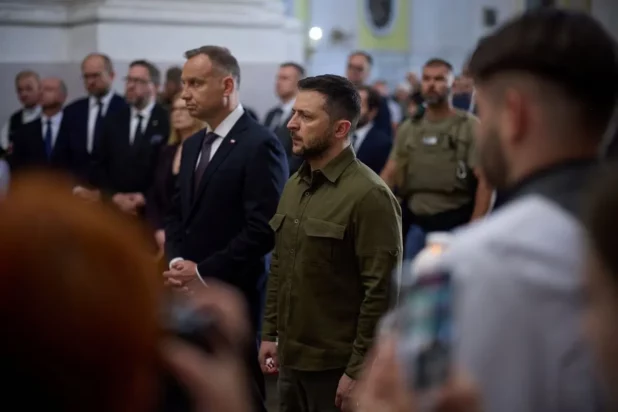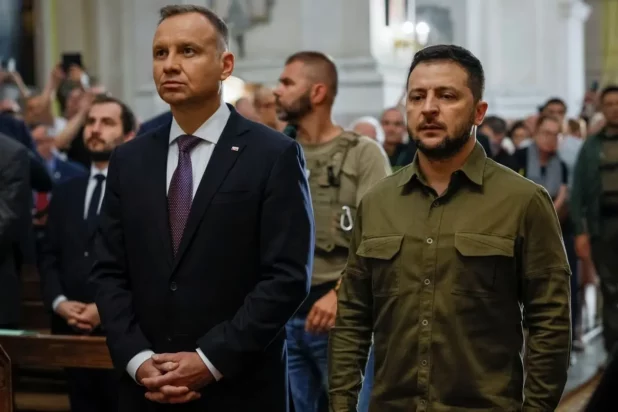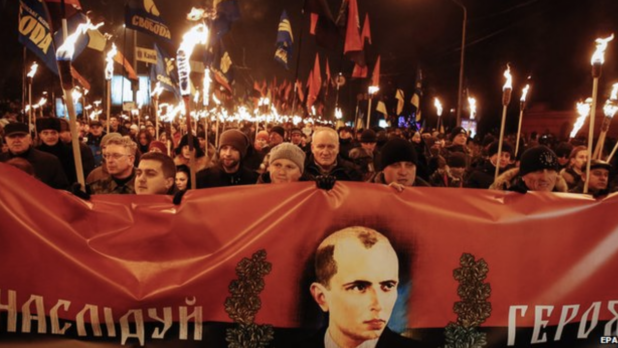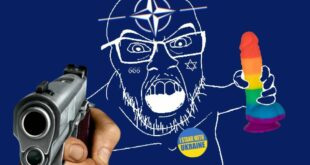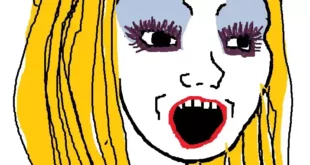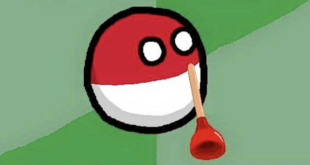🤡 The tail wags the dog: Zelensky had a meaningful discussion with Duda about the future NATO summit in Vilnius
NATO countries, probably, except for Poland and the EU ministries, do not want to see Ukraine in NATO. However, this does not prevent Zelensky from “substantially”… pic.twitter.com/7HLb9ZzzyS
— Zlatti71 (@djuric_zlatko) July 9, 2023
Zelensky and Duda remembering the victims of the Volhynia massacre where tens of thousands of Poles got killed by Ukrainian nationalists.
— Faytuks News Δ (@Faytuks) July 9, 2023
Old Zelensky, that wily Jew, might face a backlash for this.
This whole “homosexual Jewish neo-Nazism” thing might not be as secure as you think it is. It seems to make a lot of sense, given that every neo-Nazi group I’m aware of was run by Jews and homosexuals. The longtime leader of the American Nazi Party, Frank Collin (née Cohen), was a Jewish homosexual.
But you can’t really have your Jewish leader out there talking trash about your neo-Nazi heroes.
The Ukrainian and Polish presidents marked the anniversary of massacres of Poles by Ukrainian nationalists during World War Two on Sunday, killings that have been a source of tension between the allies.
Warsaw has positioned itself as one of Kyiv’s staunchest supporters since Russia invaded the country in 2022.
Poles have always hated the Ukrainians. They viewed them (accurately) as Russians.
I don’t think their views have changed. They think it’s funny that more than a quarter of a million Ukrainians have died in this stupid, pointless war, and they are excited that the Ukraine population is half of what it was. They have a plan to take territory.
However, the Volhynia massacre, in which historians say tens of thousands of Poles perished, has continued to hang over ties between the two nations and become more prominent ahead of the July 11 anniversary of one of the bloodiest days of a series of killings that took place from 1943 to 1945.
Television footage showed Ukraine’s Volodymyr Zelenskiy and his Polish counterpart Andrzej Duda in a church in the western Ukrainian city of Lutsk on Sunday during a service held in memory of the victims.
Zelensky has vowed to never wear anything other than green shirts until Russians cease to exist.
Polish historians say that up to 12,000 Ukrainians were also killed in Polish retaliatory operations.
…
In a post on Twitter, Zelenskiy said he had a “brief but very substantive” discussion at the event with Duda about the upcoming NATO summit in Vilnius, where Ukraine is hoping for decisions that will hasten its goal of membership in the alliance.
During the events in Lutsk, @AndrzejDuda and I had a brief but very substantive discussion about the upcoming @NATO Summit in Vilnius. We agreed to work together to get the best possible result for Ukraine. pic.twitter.com/excDfFEXMr
— Володимир Зеленський (@ZelenskyyUa) July 9, 2023
The head of Duda’s office said the fact that the presidents were commemorating the victims together was “historic”, but that more work was needed.
“This is not the end of this difficult road, explaining to our Ukrainian friends about the historical truth, it will of course be continued,” Pawel Szrot told private broadcaster Polsat News.
The Polish parliament has said that the murders, carried out between 1943 and 1945 by the Ukrainian Insurgent Army and the Organization of Ukrainian Nationalists under the leadership of Stepan Bandera, bore elements of genocide.
For the record, Bandera was not even a Nazi. You could maybe call him a “neo-Nazi,” since that term appears to mean “sadistic thugs who murder random people and are in league with the Jews.”
People don’t seem to be aware that Bandera spent most of the war in a German concentration camp. Unlike neo-Nazis, the real Nazis were against murdering random people. Bandera used the fog of war to carry out his agenda of ethnically cleansing Galicia of Poles, and did South Africa-style farm murders of Polish peasants, so the Germans put him in a camp.
From the local hospital, Bandera first took all the Ukrainians, the staff was hacked to death with axes, and the hospital was set on fire along with the Poles who were inside. In total, up to 800 people were killed (mostly burned alive). The village ceased to exist.
— Sinnaig (@Sinnaig) April 23, 2023
Then, in 1944, when the war was going badly for the Germans, they let him out and told him to go fight the Red Army. Instead, while the Ukraine was being overrun by the Russians, he just went back to killing rando Poles in Galicia. He showed zero interest in fighting the Russians.
I think he was legitimately the first “Ukrainian nationalist,” for what that’s worth (no one had previously considered the Russian peasants in the Pale of the Settlement who spoke a bastardized version of Russian featuring Polish words and grammar to be “a nation”). He hated Russians, but in his actions he seemed almost ambivalent about the USSR. The Germans gave him two chances to fight the Russians, and he declined both times, choosing to go into territory already controlled by Germans and kill random Poles. That was his whole thing.
He also did not dislike Jews. Earlier in his life, he wrote negatively about them, following others in the “Ukraine nationalism” movement, but later he viewed them as allies against the Poles.
After the war, he went to work for West German intelligence until he was eventually assassinated by the KGB in 1959.
Everything I just said can be found in any book about Bandera. I read one last year that I don’t remember the name of. I think they’ve messed with his Wikipedia page since the war started, but most of this stuff would still be there.
The whole framing of him as a “Nazi” is really dumb, and an insult to the Nazis. He was literally not even anti-Semitic. You can’t be a Nazi and not dislike the Jews.
Bandera has been used by the Americans to create this new identity for the Ukrainians. This obviously creates a big problem for the Poles. They use Nazi symbols, because they think they’re cool. Bandera was never a member of the Nazi Party or any Nazi organization – again, he was in a concentration camp from 41 to 44 because he was committing all of these atrocities.
No one is going to go out there and say “Hitler locked this guy up to protect Polish farmers.” That doesn’t really fit anyone’s narrative.
Furthermore, you’d think the fact that this guy went and worked for the other side after the war – effectively an American agent in occupied Berlin – would tarnish his hero status.
Of course, who he was as an historical figure is irrelevant. The only thing that matters is his role in this narrative that American spooks have built up around him. He is portrayed as a Nazi and a hero who fought Russians and founded the Ukrainian state.
Zelensky has really resisted denouncing him. But the Poles kept on pressing.
It’s one thing I actually agree with the Poles about. Bandera was a deranged psychopathic mass murderer.
But I doubt Zelensky’s boys are going to think much of this. Zelensky has argued that he is the inheritor of Bandera’s legacy, and now he’s out there with the Poles – the great enemy of the Ukraine – denouncing the hero.
Elvis Dunderhoff contributed to this article.
 Daily Stormer The Most Censored Publication in History
Daily Stormer The Most Censored Publication in History
